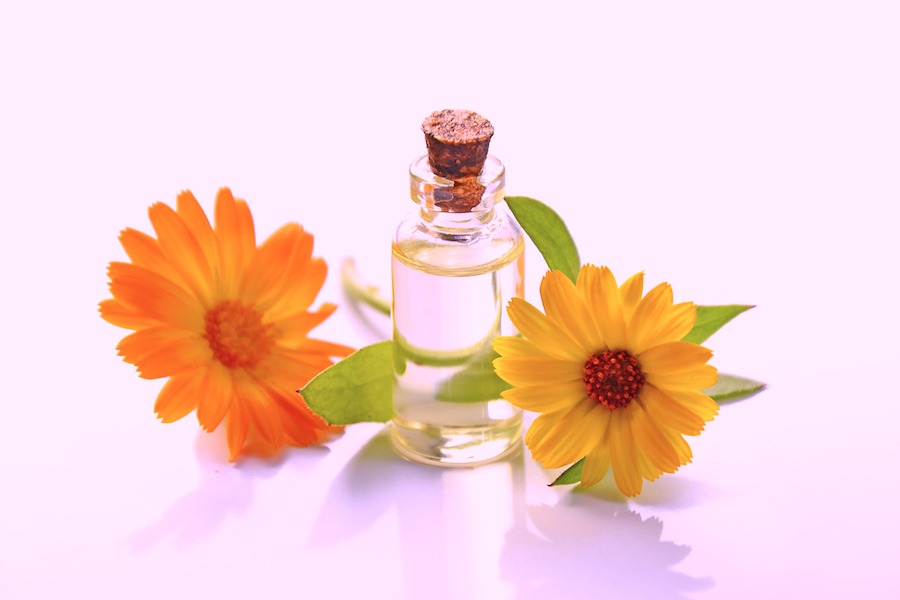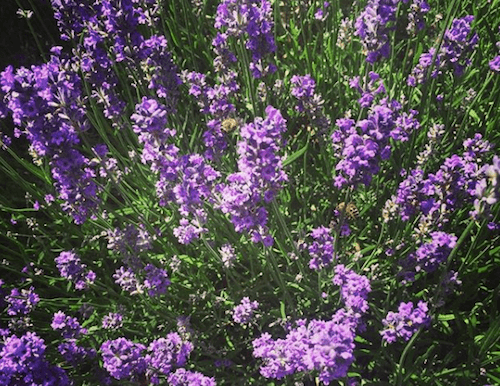The Best Essential Oils for Hirsutism

What is Hirsutism?
Hirsutism, or the presence of excess hair growth, is a highly treatable condition that is most commonly presented in women and children of all ages. The excess hair growth mainly affects areas where men typically have a lot of hair, such as the face, neck, chest, back and pubic regions. It affects 5-10% of women globally, and while it can differ greatly in the level of severity and the areas affected, for many, it is manageable with any number of treatment options.
How do people treat Hirsutism?
There are a number of treatments for Hirsutism that are well-documented and highly effective. Before looking at treatments, it is very important that the underlying cause of Hirsutism is identified by a doctor. Hirsutism can develop due to medical conditions such as Polycystic Ovary Syndrome, Cushing’s syndrome, and by some tumors and medications. In some cases, the cause cannot be identified, which is then called “idiopathic hirsutism”. If you are experiencing symptoms of Hirsutism, make sure to contact your doctor for this issue, as they can then determine the best treatment for you.
Some of the treatment options that they might mention are:
1. Medical Treatment Options
Depending on the underlying cause of your Hirsutism, there are medical treatment options that can help with treating Hirsutism. In case your Hirsutism is caused by excess androgens, the birth control pill or anti-androgens may help. Your doctor can recommend the best medical treatment option for your specific case.
2. Hair Removal Options
As some medications may take some time before they start working, physical hair removal options are often of big help for women with hirsutism. There are different methods of hair removal available. Some of them are very cost effective and can be done at home, such as shaving, waxing, plucking, sugaring or using depilatory creams. However, they may not be long lasting and need to be repeated frequently. There are options for semi-permanent or permanent hair removal, namely Electrolysis, Laser Hair Therapy, and IPL treatments. Because they need to be carried out by professionals over a number of treatment sessions, they do cost a considerable amount of money. However, for many people who want to remove the issue of unwanted hair on a permanent basis, these three options provide a highly-effective long-term solution.
Some women prefer to also look into natural supplements that could help with Hirsutism. The supplements that are often mentioned in Hirsutism are:
- Spearmint (Learn more)
- Zinc (Learn more)
- Black Cohosh (Learn more)
- Maca (Learn more)
- Saw Palmetto (Learn more)
- White Peony and Licorice (Learn more)
- Reishi Mushroom (Learn more)
Are There Any Other Natural Ways to Treat Hirsutism?
Yes. There are a range of essential oils that might be used for Hirsutism, especially to soothe the skin after hair removal. They can be applied topically (on the skin) after hair removal. Always make sure that you dilute it first before using it! For example, you can use a few drops of the essential oil to your lotion. Always test it out first on a small batch of your skin.
Now, let’s look at the most popular essential oils for skincare after hair removal:
Best Essential Oils for Hirsutism
Lavender Essential Oil
There are many benefits to using lavender essential oils, and not just for the treatment of Hirsutism. Many people really enjoy the smell of Lavender Oil and it also offers works well for hair removal! After hair removal you can use Lavender Oil to soothe the skin and help it relax. Lavender Oil may even have an effect hair growth for women with mild Hirsutism, according to this early, small study.

Tea Tree Essential Oil
Tea Tree oil is also an essential oil that is very well known and often used in cosmetics, as it’s considered anti-bacterial and anti – inflammatory. It was tested together with Lavender Oil in an early, small study, where they looked at the effects in women with mild Hirsutism.
Grapefruit Essential Oil
Grapefruit Essential Oil has a very fruity, uplifting smell that many people enjoy. It is made from the oils in the peel of the grapefruit. It is said to be anti-septic and has become very popular to use in cosmetic products. However, note that grapefruit essential oil is photo-sensitive, meaning that it reacts with light and can cause sunburn. So don’t use grapefruit oils in areas that will be exposed to sunlight.
Spearmint Essential Oil
Spearmint oil is another very popular oil that is also very well known. It is often used in skin care products and cosmetics. Spearmint is a popular plant for women with Hirsutism, as it has shown an effect on hair growth. Learn more
Frankincense Essential Oil
Frankincense oil is an oil that is becoming more and more popular in cosmetics and skincare products. It is believed to have anti-septic and astringent functions, as well as anti-aging properties.
Chamomile Essential Oil
Chamomile is one of the very popular scents, especially for tea. It is well known because it has calming effects. Chamomile oil has soothing properties, and helps with skin irritation. It is thought to have anti-inflammatory properties.
Lemongrass Essential Oil
Lemongrass is becoming more and more popular, however not everybody likes the scent. The Lemongrass oil is believed to have calming and anti-bacterial properties.
Conclusion
The three most well-documented essential oils for Hirsutism are Tea Tree Oil, Lavender Oil, and Spearmint Oil. However, there is still to little scientific evidence to say if they have a positive effect on the hair growth due to Hirsutism or not. However, you can use essential oils to help soothe the skin after hair removal.
It’s important to remember that while essential oil can be beneficial to help with some skin concerns, the underlying cause of Hirsutism or excess hair growth should always be identified and treated. Make sure to get in touch with your doctor and discuss the issue, as they can help you with finding the best treatment options for you.
